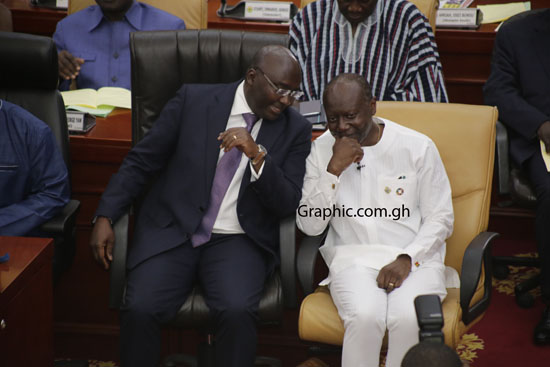
We have capability of steering economy
In 2001, Ghana, after an objective analysis of the economic situation, took the bold decision to opt for the Heavily Indebted Poor Countries (HIPC) initiative as an opportunity to take a breather to pursue medium to long-term economic goals to place the country on an even keel.
As expected, there were different reactions to the government's decision. But Bank of Ghana (BoG) data at the end of the period revealed that debt relief impacted positively on Ghana’s external debt repayments and reduced the debt-servicing burden that had plagued the country over the years.
Advertisement
Again, data provided by the central bank at the time showed that there was a marked increase in spending on social services after the launch of the HIPC initiative, with most of the pattern of spending being pro-poor.
The hope was that the country’s economy would not slack back into the pre-HIPC era when the economy was saddled with mounting debts, rising inflation and unsustainable budget deficits. But in 2015, Ghana’s debt-to-GDP ratio (that is, debt service ratio and debt-to-export ratio) breached the required limits, thereby putting the country at a high risk of debt distress, which was just a step shy of being declared a debt-distress country.
Between 2015 and 2018, the Bretton Woods institutions pumped funding support of about $918 million into the economy under the Extended Credit Facility (ECF) programme aimed at restoring debt sustainability and macroeconomic stability in the country. It was expected to foster a return to high growth and job creation, while protecting social spending.
However, the country is still suffering from the effects of the 2015 category. For instance, in May this year, the IMF and the World Bank classified the country as a high-risk debt distress country, with the public debt stock peaking at GHc198 billion as of March 2019.
Last Thursday, at a workshop organised by a civil society organisation, the Resident Representative of the IMF in Ghana advised the government to pay critical attention to issues that could send the country back to the bailout programme with the fund. It is against this background that the Daily Graphic urges the government to endeavour and resolve to stay the course and maintain fiscal discipline that will prevent the country from going back to the IMF.
The Daily Graphic is highly convinced that we have both the human and the material resources required to work without an IMF programme. Ghana's economy is the second biggest in West Africa and we have achieved some successes in recent times. Economic growth reached 8.1 per cent in 2017, the second-fastest growing African economy that year.
In 2018, the economy continued to expand rapidly; quarterly gross domestic product (GDP) growth was estimated at 5.4 per cent.
We know that something good is happening and we urge the government to work at the large fiscal deficit and balance of payment deficit by increasing revenue and decreasing spending. We should also accelerate actions on ensuring that we add value to exports to derive more foreign exchange to reduce our vulnerability to gold, cocoa and oil in case of trade shocks.
We are convinced that with the current rate of performance of the economy, Ghana has the potential to run an effective economy and proceed on the path of development successfully without another IMF programme.
We charge all citizens to put their shoulders to the wheel and support the President’s agenda of a Ghana Beyond Aid, so that we can use our indigenous resources to catapult our development. After all, Ghanaians know their country better than outsiders.



